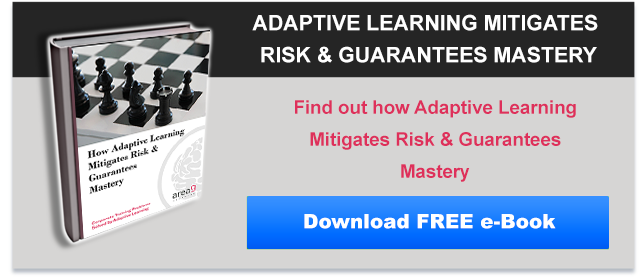Assessments have been critical to successful compliance programs. Regular testing allows businesses to prove to auditors that the proper steps toward risk mitigation are being taken. The fact that Adaptive Learning uses formative assessment (teaching by asking questions throughout the course to assess learner understanding) instead of summative assessment (a post-course test) makes it much more powerful than traditional approaches to compliance training.
Why Adaptive Learning Is Critical for Risk Mitigation Programs
Adaptive Learning uncovers both knowledge gaps and unconscious incompetence. Through formative assessment and learner self-assessment of their answers, Adaptive Learning personalizes to individual learners. Personalized learning helps the adaptive engine adjust to the needs of each learner and identifies individual knowledge gaps and unconscious incompetence.
Unconscious incompetence, or not knowing that you don’t know, is dangerous for any business, especially those in fields where there’s a lot at stake. When a doctor thinks they know the correct way to treat an illness, but they actually don’t, it could mean a bad outcome for the patient, and a malpractice suit for the doctor and healthcare facility. Area9 research shows that unconscious incompetence exists in all employees in 15-40% of critical competencies. But Adaptive Learning uncovers these known or unknown knowledge gaps and fixes them.
Adaptive Learning changes the metrics by which we measure successful training: is it better to prove that compliance training took place or that it was successful? In regulatory compliance, testing must occur for auditors to be able to assess that businesses are within compliance. But for the business itself, a pass/fail on a test doesn’t prove that true understanding of those regulations occurred. A business needs to see for its own sake whether compliance regulations have been understood. Adaptive Learning doesn’t rely on a pass/fail metric to prove learning. Instead, Adaptive Learning uses data collected from learners’ answers, their confidence in those answers, the time it took them to answer, etc., to show how individuals, teams, and the company performed in compliance training. Because Adaptive Learning doesn’t rely on tests, employees don’t stop learning until they’ve mastered the content - ensuring they’re well prepared for a regulatory audit.
If you had the choice between knowing that your employees scored 100% on a trivial compliance test, or knowing that your employees truly mastered the compliance goals, wouldn’t you choose the latter?
Adaptive Learning engages learners: we all know that an engaged employee learns better, faster, and performs well. While risk mitigation is essential to a business’s success, compliance training is usually viewed as a mandatory, mindless waste of time. In other words, completely unengaging. The personalized learning generated by the adaptive engine ensures that learners never have to review learning content they’ve already mastered. When learners no longer have to sit through an hour-long compliance refresher, but instead can quickly demonstrate their proficiency and focus on knowledge gaps and new material, suddenly compliance training isn’t as unengaging as it once was.
Adaptive Learning Can Mitigate Risk for Your Business
Download this infographic to discover how Adaptive Learning mitigates risk for your business, saving your business time (in re-training) and money.






